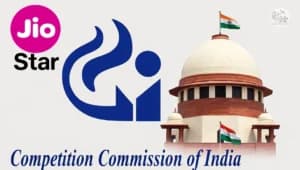The Supreme Court, on February 3, issued notice in a plea filed by the National Medical Commission (NMC) challenging the Rajasthan High Court’s order, which refused to interfere with the increase in medical seats from 50 to 100 at JIET Medical College, Jodhpur.
The case was heard by a bench comprising Justice Surya Kant and Justice NK Singh, who examined the challenge against the division bench’s decision to uphold a single-judge order permitting the increase in seats, citing that the admission process had already begun.
The division bench of the Rajasthan High Court, led by Chief Justice Manindra Mohan Shrivastava and Justice Munnuri Laxman, was considering an appeal filed by the Union of India, NMC, and the Medical Assessment and Rating Board. The appeal contested the single-judge’s interim order, which allowed JIET Medical College to increase its seats from 50 to 100.
During the proceedings, Justice Surya Kant inquired about the merit-based principles followed in granting admissions. The counsel representing the NMC responded that all admissions would take place through the NEET-Counselling process.
"The state shall be doing these admissions," the counsel affirmed.
Read Also:- Supreme Court Declares 'Both Hands Intact' Requirement for MBBS Admissions Unconstitutional
The Supreme Court also noted that despite the division bench directing the single judge to decide the case within a month, the matter remained pending. Consequently, the apex court issued a notice in the case and scheduled the next hearing for March 17.
Background of the Case
The Rajasthan High Court’s division bench acknowledged that, although it believed the single judge should not have granted the interim order, it chose not to interfere since the admission process had already concluded. The court observed:
"However, even though, we have held that interim order should not have been granted, we find that by the time this appeal came up for hearing, the admission process and the last date of admission were already over. By virtue of the interim order, 50 seats were increased, and those seats were made available through the counseling process. The students have already paid fees, been admitted, and commenced studies. At this stage, vacating the interim order would mean the removal of students who have already benefited."
The bench referred to the Supreme Court’s decision in Board of Governors in Supersession of Medical Council of India vs. Tirupati Balaji Educational Trust & Others, where the court had refrained from interference but directed the final hearing to be completed within three weeks to ensure students were not left in limbo.
Based on this precedent, the High Court decided not to set aside the interim order at this stage. Instead, it urged the single judge to expedite the case:
"In view of the above, even though, we have held that interim order ought not to have been granted, at this stage, we are not inclined to set aside the interim order, but request the learned Single Judge to decide the case. We direct the parties to complete their pleadings within a period of 10 days from today. We request the learned Single Judge to hear the petition expeditiously and decide the same within a period of one month from the date of completion of pleadings."
Read Also:- NEET Qualification Mandatory for MBBS Abroad: Supreme Court Ruling
Origin of the Dispute
The issue began when JIET Medical College applied for permission to establish a medical college with an intake capacity of 150 students. Following a public notice, a show cause notice was issued requiring the college to fulfill certain compliance requirements. A compliance report was submitted, but a subsequent physical inspection revealed deficiencies, leading the Medical Assessment and Rating Board (“the Board”) to reject the establishment of the college.
The respondents filed an appeal, which was initially dismissed. However, in a second appeal, permission was granted for an intake of 50 students. Dissatisfied with this decision, the college filed a writ petition before the Rajasthan High Court, where a single judge passed an interim order allowing an intake of 100 students. This led to admissions being carried out for the additional 50 seats, which subsequently became the subject of legal challenges.
Case Details : NATIONAL MEDICAL COMMISSION vs. UNION OF INDIA| SLP(C) No. 005259 - / 2025















